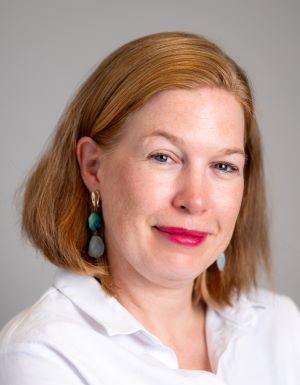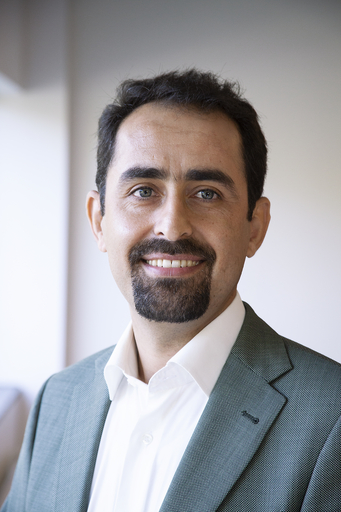Empowering prosumers for a sustainable and resilient electricity ecosystem
Why this research is important
“This research addresses the urgent need for a sustainable and resilient energy ecosystem amidst rising electricity demand driven by AI advancements and the electrification of transportation, coupled with the transition to renewable energy production due to environmental concerns. Balancing renewable supply with responsible consumption is more critical than ever. ”
Dr. ir. Taher Ahmadi
Associate Professor
Five questions for Taher Ahmadi
1. What is the aim of the research project?
This research project aims to investigate Smart Energy Systems (SES) in the electricity sector, focusing on empowering individual prosumers—consumers who also produce electricity through solar photovoltaic (PV) panels—within a sharing economy framework. By implementing peer-to-peer energy trading, SES incentivizes prosumers to contribute to a more efficient and sustainable energy ecosystem while improving their economic outcomes.
2. How are you going to investigate Smart Energy Systems?
The investigation of Smart Energy Systems (SES) is divided into four interconnected subprojects: Smart Grid Integration, Energy Storage Solutions, AI-Driven Demand Response, and Dynamic Pricing Models. The first subproject aims to develop advanced smart grid technologies using blockchain to enable secure, transparent peer-to-peer energy trading, creating a decentralized energy market and ensuring real-time grid stability. The second focuses on innovative energy storage solutions, such as lithium-ion, solid-state, and hybrid systems, to optimize their capacity and efficiency, facilitating the reliable integration of prosumer-generated energy into the grid. The third utilizes AI-driven demand response by developing algorithms to forecast energy demand, identify peak periods, and optimize consumption patterns, enhancing grid stability and providing economic benefits to prosumers. The fourth explores dynamic pricing models that reflect real-time market conditions, incentivizing prosumers to align their energy consumption with grid demand, promoting efficient energy usage, and reducing grid strain.
3. Does this project align with the United Nations Sustainable Development Goals?
This project aligns closely with SDG 12 by reducing waste and promoting the use of renewable energy. Additionally, the project indirectly supports other goals such as SDG 7 (Affordable and Clean Energy) by improving access to renewable energy sources, and SDG 13 (Climate Action) by reducing greenhouse gas emissions through sustainable energy practices. Overall, the project contributes to a holistic approach to sustainable development by addressing critical energy challenges and fostering a more resilient and equitable energy ecosystem.
4. What will be the expected outcomes of this research?
The expected outcomes of this research include the development of a decentralized and resilient energy ecosystem that empowers prosumers to actively participate in the energy market. Key outcomes include advanced smart grid technologies enabling secure peer-to-peer energy trading, optimized energy storage solutions that improve the integration of renewable energy, and AI-driven demand response systems that enhance grid stability by aligning energy consumption with supply. Additionally, the implementation of dynamic pricing models will incentivize efficient energy use and reduce peak demand strain.
Overall, this research will contribute to technological innovation, economic benefits for prosumers, and significant environmental impacts by promoting the use of renewable energy sources. It will also provide valuable guidelines for policymakers and stakeholders, supporting the transition to a sustainable energy future and aligning with global sustainable development goals.
5 Why is it important that this research takes place at Nyenrode?
Conducting this research at Nyenrode Business University is crucial.
This research project aligns perfectly with the university’s core values of Leadership, Entrepreneurship, and Stewardship.
The project’s focus on empowering prosumers through smart energy systems directly supports entrepreneurial innovation and sustainable business practices, which are central to Nyenrode’s philosophy. The university’s unique approach of combining academic theory with practical relevance ensures that the research will not only contribute to academic knowledge but also deliver tangible benefits to society. Moreover, Nyenrode’s emphasis on personal development will enable researchers and students involved in this project to grow as leaders in the energy sector, capable of driving sustainable change. By pushing boundaries and encouraging out-of-the-box thinking, Nyenrode provides the ideal environment for pioneering research that addresses critical energy challenges and supports the global transition to a sustainable and resilient energy ecosystem.
About Taher Ahmadi
Dr. Ir. Taher Ahmadi is an Associate Professor of Supply Chain Management and Analytics at Nyenrode Business University. He is part of Nyenrode's Faculty Research Center for Marketing & Supply Chain Management.
I am enthusiastic about guiding business students and managers through turning business uncertainties into business opportunities.
Ahmadi holds a Ph.D. degree in Supply Chain and Operations Management from the School of Industrial Engineering & Innovation Sciences, Eindhoven University of Technology (TU/e). During his PhD, he visited McCombs School of Business, the University of Texas at Austin, Texas, the US as a visiting scholar. He got his bachelor’s and master’s degrees in Industrial Engineering from Isfahan University of Technology and Amirkabir University of Technology in Iran, respectively.
Support our research for a sustainable world.
Would you like to join us in contributing to a sustainable world? Then please donate to Stichting Nyenrode Fonds (Nyenrode Fund Foundation), so that we can continue to finance studies like these. We are a private university, and do not receive funding from the government. We depend entirely on private donations from our community.
With your support, we can appoint a young academic professional to conduct this research. By supporting us, you can help Nyenrode while offering young talent the chance to take the next step in their academic career.
If you would like to contribute, or if you have questions about the options for making a donation, then please feel free to contact us.Contact
-
Christina Ceulemans
Job title Sr. relations manager fundraiserPhone number +31 (0) 682 607 913Email address Send me an email

